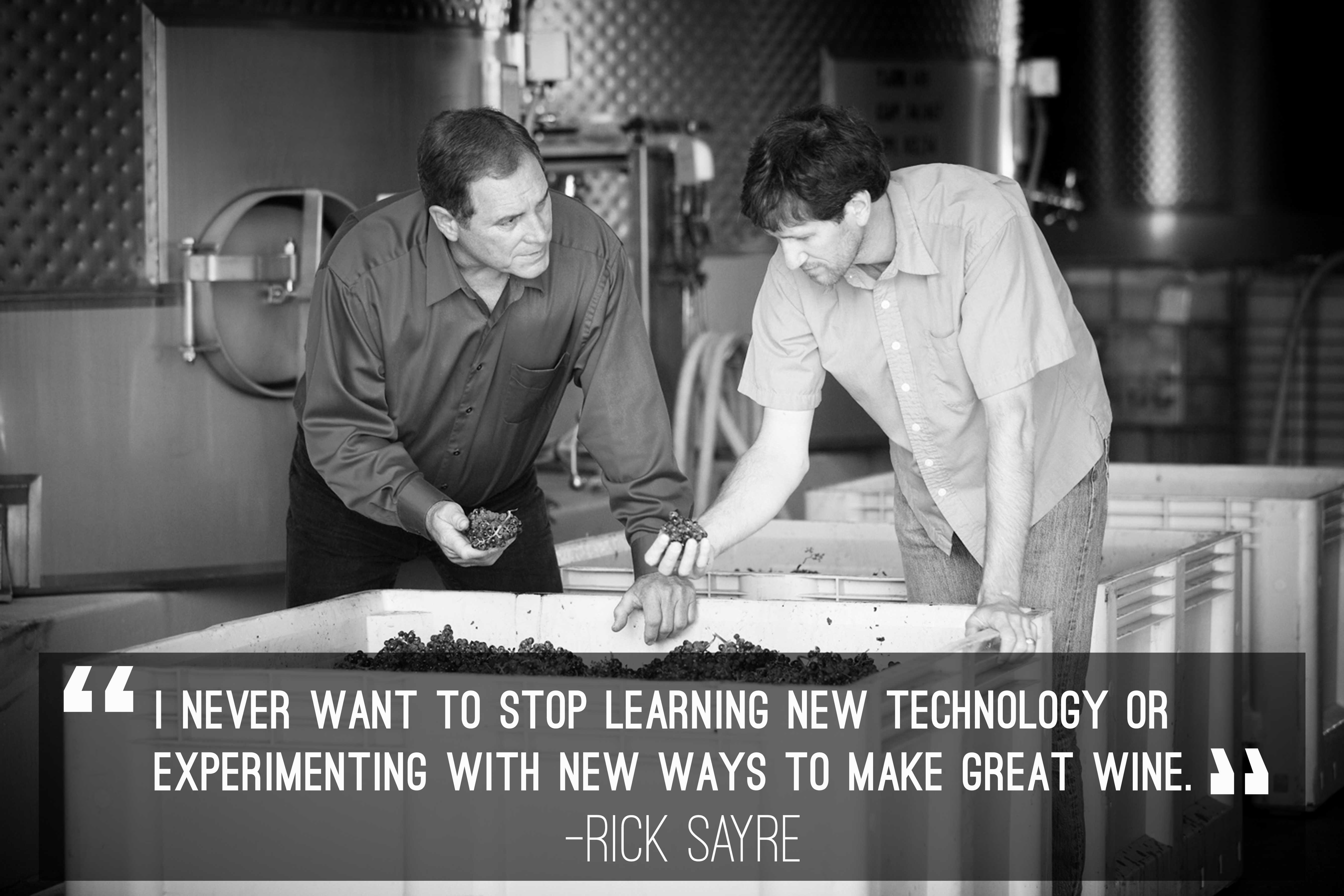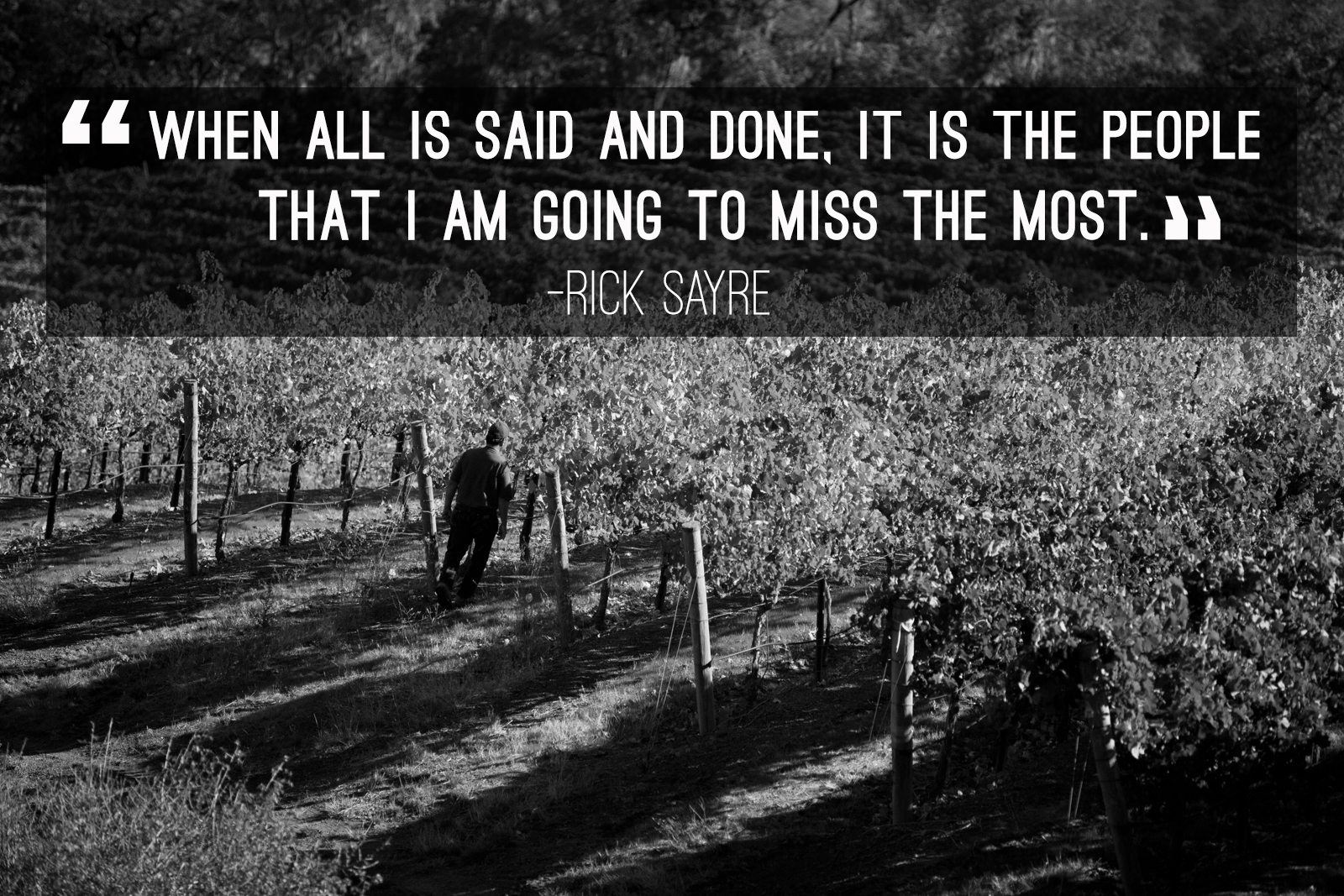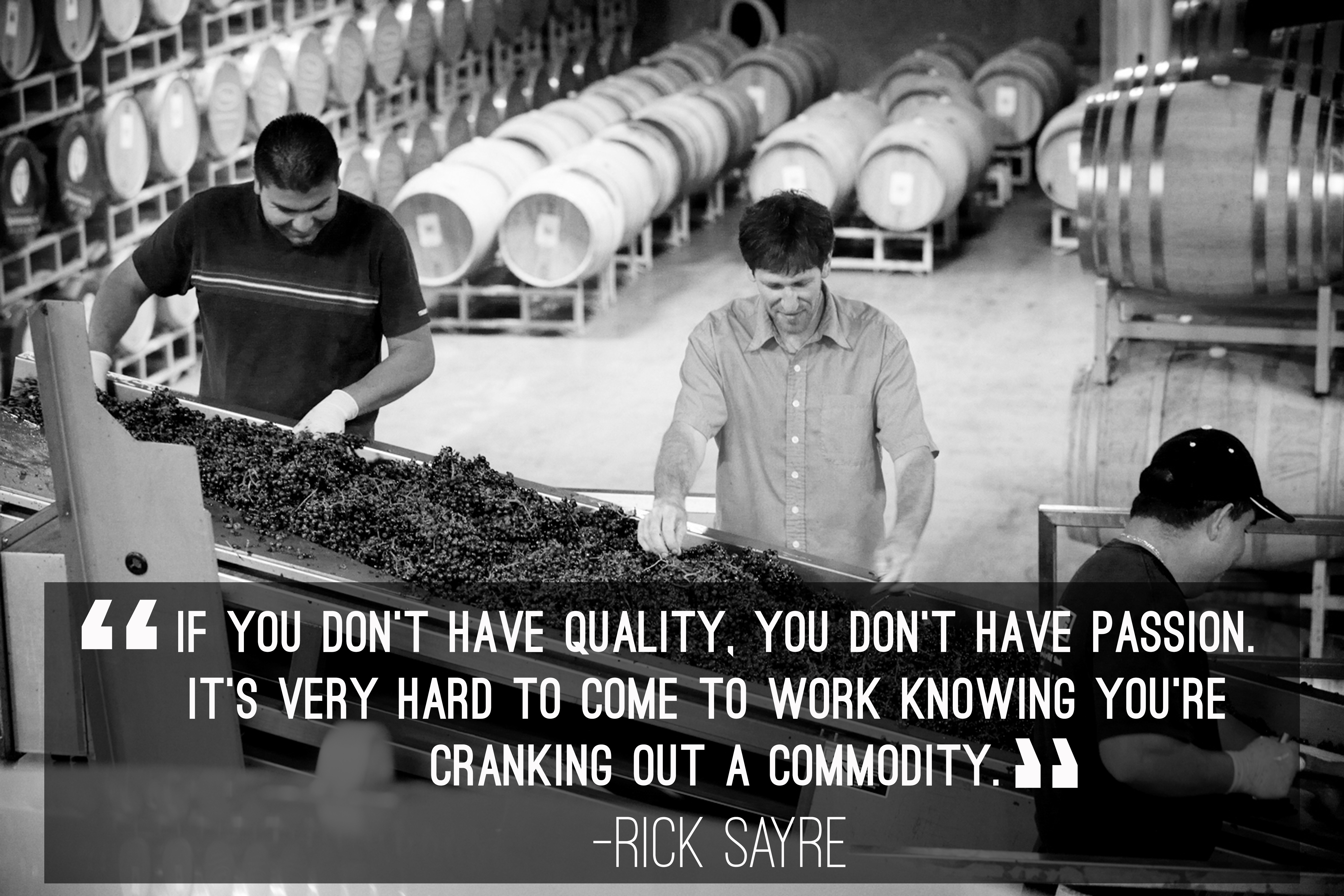It would be unfair to summarize Rick Sayre’s entire career as a winemaker as a choice of necessity, but in some ways that is true.
“I wanted to be a fire ranger,” Sayre said. “I only went into winemaking as a choice of necessity, because I needed to have a roof over my head and put food on the table.”
That phrase — a choice of necessity — was instilled into Sayre by his former mentor, the world-renowned Winemaster André Tchelistcheff.
“I was a little arrogant early on in my career as a winemaker, and I would tell André about certain wines I was sort of being forced to make,” Sayre said. “He would say to me, ‘I know man, but you just got to do it. It’s a choice of necessity if you want to have a job.’”
Tchelistcheff’s lesson has served Sayre well over the years, and it is one that he has tried to pass on to his own apprentices.
Hopefully they’ve been paying attention, because after spending the last 40 years crafting wines for Sonoma County’s Rodney Strong Vineyards, Sayre will be taking a step back from the day-to-day duties of winemaking and letting his long-time pupils run the show.
Sayre’s time at Rodney Strong has led to some remarkable accomplishments, including being named Wine Enthusiast’s Winery of the Year in 2014. It has also given him a perspective of California’s wine industry that few others can match, as well as a deep respect and heartfelt appreciation for those in the industry who had to make similar choices of necessity.
We asked Sayre to reflect a bit on the last 40 years, and to share with us what he’s seen, what he’s learned and what he’s going to miss, before knocking the dirt and soil off his field boots one final time.
These are his words.

If you don't have quality, you don't have passion. It's very hard to come to work knowing you're cranking out a commodity.
I’m a father, and I’ve learned over the years that sometimes you just have to get out of your children’s way. It is the same thing with young winemakers. You teach them. You try to keep them open-minded. At the same time, I occasionally try to save them from themselves.
“I did that 30 years ago and it didn’t work. Do you really want to do it again?” I’ll ask them. I call it reinventing the wheel. Sometimes they need to screw up to find out for themselves what you learned decades prior.
Justin [Seidenfeld] and Greg [Morthole] kind left the nest a while ago, so I'm not dragging them out in to the vineyards anymore. They’ve been dragging me out there as of late.

I’ve loved making wine in California. Here we don't have our hands tied behind our back with rules and laws as in France.
Here in California, people love to share information. If someone learns something new or invents something, the first thing they want to do is write a paper and tell everybody.
I never want to stop learning new technology or experimenting with new ways to make great wine.
André taught me to embrace technology. He passed away in 1994. There was so much more to be discovered, and so much has happened since then that he would have loved to embrace but just wasn't able to.
The way I was trained, my job is to make the best wine possible. That's to use technology, clones and different types of barrels.
Winemakers are like chefs, and barrels are what we call winemaker's spice rack. There's probably more science in making barrels than there is in roasting coffee nowadays.

When all is said and done, it is the people that I am going to miss the most.
I'm talking about the people who put the wine in the bottle, people that weigh the grapes on the scales, people who go out and sample the vineyards. These people all have to be passionate with precision. These people help me.
Part of the gratification I have is to the people I've trained and worked with. You find good people, you try to keep them. Sometimes, they're going spread their wings and go somewhere else. That happens.
A lot of winemakers don't have other employees, because nobody else can live up to their expectations. They do all the work themselves. This is why having a good team is definitely a challenge.
To me, winemaking is easy. It's getting the people to embrace it, that's the difficult part. Have them enjoy it and always try to let them know there's room to grow.
The best compliment you can give a winemaker is, “I’d like another glass.”